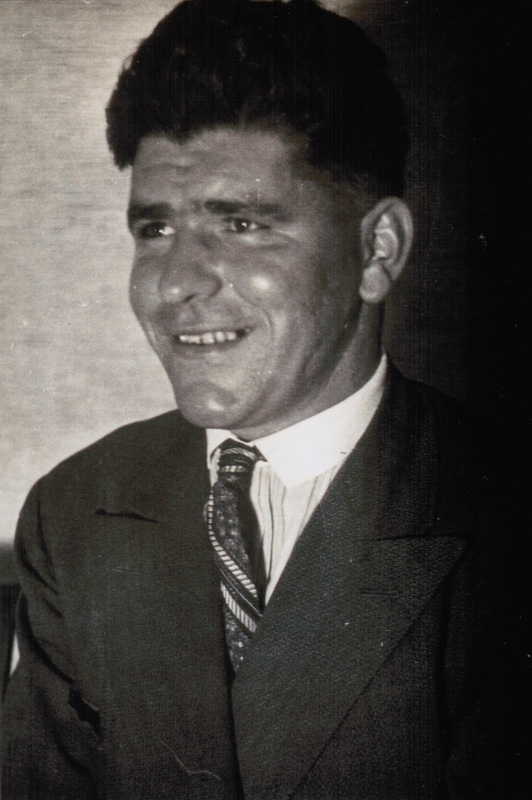Emil Meier, in Armut aufgewachsen, begann eine Lehre als Möbelpolier. Der sozialdemokratischen Tradition der Eltern entsprechend trat er der Sozialistischen Arbeiterjugend bei, wechselte dann aber mit 17 Jahren zum Kommunistischen Jugendverband und beteiligte sich an Flugblattverteilungen und Protestumzügen gegen die soziale Not. 1928 wurde er Mitglied der KPD, deren Stadtteilgruppe Obergiesing er organisatorisch leitete. Weil er bereits in der Weimarer Republik aus politischen Gründen mehrmals verhaftet worden war, nahm ihn nach der Machtübernahme der Nationalsozialisten die Polizei schon am 10.3.1933 fest und brachte ihn am 22.3.1933 in das eben eingerichtete KZ Dachau. Erst am 26.4.1935, nach über zwei Jahren, kam er wieder in Freiheit. Zwischen 1937 und 1939 wurde Meier noch viermal kurzzeitig verhaftet und eingesperrt; im KZ Dachau lernte er den ebenfalls „rückfälligen“ politischen Häftling Robert Eisinger kennen.
Nach der Niederlage von Stalingrad entschlossen sich beide, mit Flugblättern auf die Sinnlosigkeit der Weiterführung des Krieges hinzuweisen. Die ersten sechs Flugblätter schrieb und vervielfältigte Eisinger alleine und verschickte einen Teil mit der Post, den größeren Teil steckte Meier nachts in Briefkästen oder legte sie öffentlich aus. Als Eisinger im Herbst 1943 aus Enttäuschung über die geringe Resonanz seine Aktivität einstellte, machte Emil Meier allein weiter, unterstützt von einem enttäuschten Mitglied der NSDAP. Meier verfasste und verteilte insgesamt 22 weitere Flugzettel.
Bei einer Verteilungsaktion in der Nähe von Traunstein wurde er am 7.1.1945 festgenommen und in Gefängnissen festgehalten, verhört und gefoltert. Gegen Emil Meier, Robert Eisinger und ihrem Helfer Anton Heiß sollte noch Ende April ein Verfahren vor dem Volksgerichtshof stattfinden, der aber nicht mehr zusammentreten konnte. Am 29.4., als die amerikanischen Truppen bereits vor München standen, wollte der Oberreichsanwalt in Stadelheim ein Exekutionskommando aus dem Wachpersonal zusammenstellen, um die drei Widerstandskämpfer erschießen zu lassen. Dazu kam es nicht, weil sich die Wachtmeister weigerten, dem Befehl Folge zu leisten.
Emil Meier war durch die Misshandlungen in der Haft gesundheitlich schwer beeinträchtigt und musste lange um eine angemessene Haftentschädigung kämpfen.


